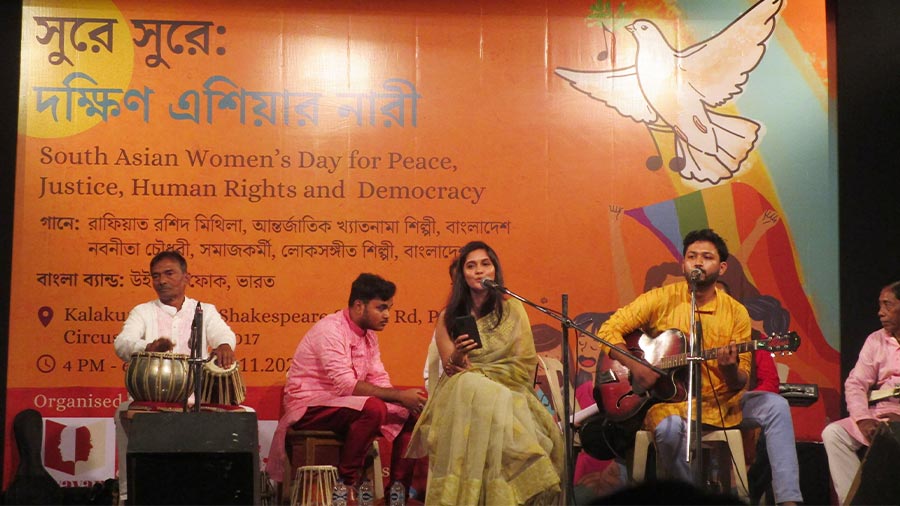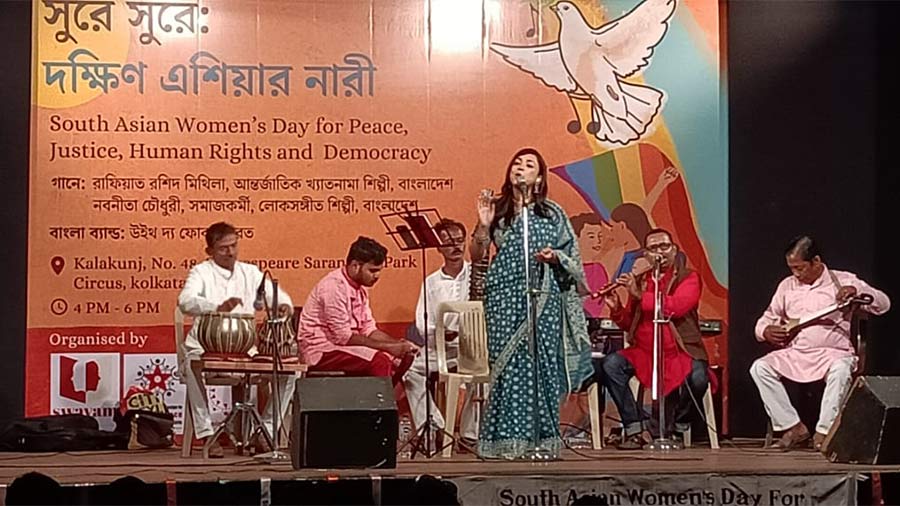Swayam, a leader in the fight against gender-based violence, marked South Asian Women’s Day on November 30 with music and songs in tribute to poet and activist Kamla Bhasin.
It was Bhasin, one of the founders of SANGAT (South Asian Network for Gender Activists and Trainers), who chose the date to be celebrated as South Asian Women’s Day in support of the Peace, Democracy, Human Rights and Justice.
The day falls within the 16 days of Activism against Gender Based Violence observed every year from November 25 to December 10.
South Asian Women’s Day is aimed at addressing the issues of discrimination on the basis of caste, religion,ethnicity and sexuality and socio-economic problems faced by women from various countries in the region. Solidarity among women from across the region would mean empowerment and equality for them in a hope for a better life and place in society.
Swayam, along with SANGAT, organised an event at Kala Kunj, Kolkata, this year to raise awareness about violence against women and inequality.
The audience was filled with people from several walks of life, many of them women who have experienced a life of violence and are under the wings of Swayam today. Messages against injustice and violence were conveyed through music, an international language that transcends borders to make those more aware and feel more included.
Rafiath Rashid Mithila, a Bangladeshi singer, development worker and head of the Early Childhood Development programme in BRAC, was one of the performers. With The Folk, a Kolkata-based outfit, also took the stage to spread the message about empowerment through melodies.

Messages against injustice and violence were conveyed through music Official Press Release
Bangladeshi journalist, singer and television host Nobonita Chowdhury sang a few Rabindrasangeet songs that resonated with some of the survivors in the audience. “I sang Buk bendhe tui dnara dekhi, bare bare helish ne bhai and Tor aponjone chharbe tore ta bole bhabna kora cholbe na. Some of the women in the audience could identify with the emotions in the songs and they came up and embraced me, thanking me for holding up their daily struggles. I also sang Lalan Fakir’s Maayere bhojile hoy Babar thikana. Often, women who come out of an abusive relationship do not get access to their children, children are often recognised by their father’s name by law and by society and that is painful,” she said.
